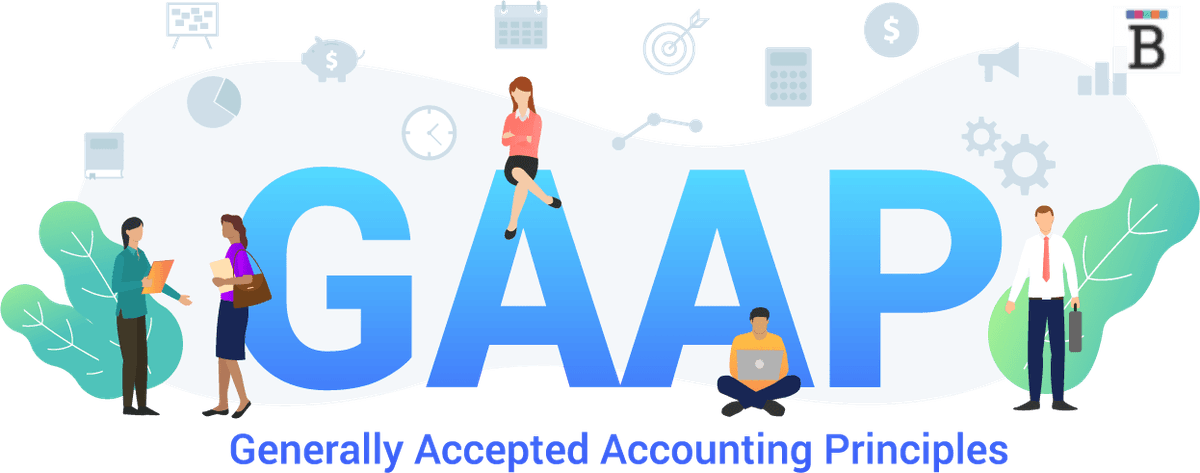Generally accepted accounting principles (GAAP) can help businesses establish and maintain clear records of their financial history. While responsibility for GAAP falls on accountants, familiarity with the standards and the pros and cons of GAAP can help you hire knowledgeable financial experts and may ultimately affect your company’s financial well-being. Whether you simply want to make better projections and decisions or you’re gearing up to sell your business or manage an audit, GAAP can set you up for success.
What is GAAP?
GAAP is a term that refers to a set of accounting rules, standards and practices used to prepare and standardize financial statements that are issued by a company. The goal of these standards is to help investors and creditors better compare companies by establishing consistency and transparency. Companies are expected to follow generally accepted accounting principles when they report their financial information.

GAAP affects the following activities:
- Measuring economic activity
- Disclosing information about an activity
- Preparing and summarizing economic information
- Recording measurements at regular intervals
GAAP is a set of accounting rules, standards and practices that govern a company’s financial reporting. GAAP is designed to improve transparency and consistency with a company’s accounting and financial reporting.
The 10 principles of GAAP
If your company needs to comply with GAAP (e.g., as a public company), then you and your accounting team must adhere to these 10 conventions:
1. The principle of regularity
This principle states that GAAP adherence happens around the clock, not just occasionally.
2. The principle of consistency
Accountants must adhere to the same practices during all accounting periods and across all external income statements. If an accountant changes their accounting practices, these changes must be explained and justified in the footnotes of your company’s income statements.
3. The principle of sincerity
Accountants should remain unbiased and record entirely accurate entries.
4. The principle of permanence of methods
This requires accountants to use the same financial reporting methods across all financial statements for easier comparisons of one financial statement to another.
5. The principle of noncompensation
According to this principle, accountants must clearly report all positive and negative values on a financial statement. Additionally, accountants must not attempt to compensate for debt with an asset and/or revenue with an expense.
6. The principle of prudence
GAAP accountants should rely solely on numbers and facts when preparing financial statements. This means that accountants should not speculate or forecast financial figures on external financial statements, though you and your accounting team can develop internal budget forecasts for this purpose.
7. The principle of continuity
Accountants complying with GAAP assume that the business for which they are tabulating financial information will remain operational for the foreseeable future.
8. The principle of periodicity
GAAP compliance requires accountants to report all financial figures in the accounting period they represent rather than stretching periods or numbers to better fit a financial report.
9. The principle of materiality and good faith
This joint principle maintains that accountants should report all available financial data and accounting information to the best of their abilities.
10. The principle of utmost good faith
This GAAP principle requires that accountants, business owners and all other parties involved in financial reporting are honest and truthful.
How GAAP is regulated
Following the stock market crash of 1929 and the Great Depression, the government passed laws to establish the U.S. Securities and Exchange Commission (SEC), which created accounting practices for publicly held companies. Here’s more about what GAAP governs and who oversees shaping, implementing and enforcing GAAP standards.
- GAAP use mandates: The SEC requires publicly traded and regulated companies to follow GAAP with their financial reporting. Companies that issue stock are held to this standard by the Securities Act of 1933 and the Securities Exchange Act of 1934, which require yearly external audits by independent accountants. Companies without external investors are not obligated to follow this standard.
- GAAP governing bodies: The Financial Accounting Standards Board (FASB) is a private-sector group that has the authority (from the SEC) to set financial reporting standards used at the corporate level. The Financial Accounting Standards Advisory Council (FASAC) advises FASB on matters that influence GAAP rules. The SEC recognizes the standards set by FASB and has the power to enforce those standards.
- Government requirements: Government entities are influenced by a set of standards that establish GAAP principles for state and local governments. The Government Accounting Standards Board (GASB) manages those standards.
- Foreign country requirements: Other countries have their own GAAP rules, which differ from those in the United States. Each country’s version of the FASB, such as the Canadian Institute of Chartered Accountants (CICA), creates these rules.
In the U.S., GAAP is mandatory for publicly traded and regulated companies. The Financial Accounting Standards Board (FASB) can set GAAP standards, while the SEC has the power to enforce those standards. Other countries have their own GAAP standards.
Applying GAAP in the workplace
Accountants apply GAAP through FASB pronouncements referred to as Financial Accounting Standards (FAS). Since its establishment in 1973, the FASB has issued more than 100 FAS pronouncements. Before the formation of the FASB, other bodies previously either set or helped set GAAP, including the American Institute of Certified Public Accountants Accounting Standards Committee. The Accounting Principles Board (APB) and the Committee on Accounting Procedure (CAP) issued pronouncements that date as far back as 1939. Some accounting standards established by the APB and CAP are still in effect.
While the standards set by FASB and its predecessors account for the majority of GAAP, other rules can be found in statements from the Financial Reporting Executive Committee (FinREC) of the AICPA. Additional best practices exist outside formal pronouncements and are commonly accepted, due to their mainstream use. For example, it is generally assumed that financial statements are based on the belief that a company will continue to conduct business.
Hiring GAAP accounting professionals

Accounting professionals are well-versed in GAAP accounting. However, due to the many different standards affiliated with GAAP, GAAP rules may be subject to various interpretations and potential manipulation.
For companies, the pressure to hire good accountants is intense, as the costs for falsifying records or having inadequate accounting services are high.
If you believe your small business may eventually be subject to GAAP, you may wish to follow the standard as early as possible. If it’s within your budget, your company can retain the services of an experienced finance lawyer to assist you in vetting accountant candidates during the interview process. This professional can assist you in asking questions to determine your applicant’s level of familiarity with GAAP.
Accountants and accounting teams are familiar with GAAP principles to their work, but there are some considerations small business owners need to be aware of. When hiring an accountant, retain a finance lawyer who can help you vet qualified candidates.
GAAP vs. IFRS
Some countries and multinational companies would like to see the differences between GAAP and IFRS — the International Financial Reporting Standards — eliminated. Fusing the two would ease comparisons between companies based in different regions. Advocates of the merger say it would also simplify management, investment, transparency and accountant training.
Currently, the main difference between these two standards is that IFRS is principles-based, while GAAP relies on guidelines and rules.
Despite improved ease of management, accounting and investment, some argue that combining the standards would lead to new issues. The difficulty of merging cross-cultural business ethics and processes into one codified standard could prove insurmountable. Vast differences between political and tax systems could also be prohibitive. More concretely, the time it would take to merge the systems and adopt a universal standard could result in financial losses that exceed the promised gains accrued through simplified standards.
The best accounting software for GAAP
Using the best accounting software can make abiding by GAAP standards a bit easier. Some big names, like QuickBooks, are ones that small businesses frequently turn to. But smaller alternatives also do a great job.
For example, in our Xero review, we found the platform to excel at tracking bills and supporting timely payments, a must for any business interested in managing expenses wisely. Or for businesses looking for something that’s just easy to use, we found in our Sage review an intuitive platform that’s highly effective when all you want to do is keep your books up to date.
There's accounting software out there for everyone, regardless of your circumstances. If you’re not sure where to start, check out our guide to
choosing an accounting software for your business.
Use GAAP as a roadmap to better accounting practices
The guidelines in GAAP exist to ensure your accounting records are clear archives of the financial history of your business. The benefits of clean records are many, including the ability to make better projections, improve decision-making, and handle audits effectively. Implementing GAAP best practices in your accounting should be a top priority. When you do that, you can monitor your business’s financial performance and ensure operations grow in a way that’s healthy for your bottom line. Cash flow is life for a small business, so protect yours with the best possible accounting practices.
Tejas Vemparala and Max Freedman contributed to this article.







